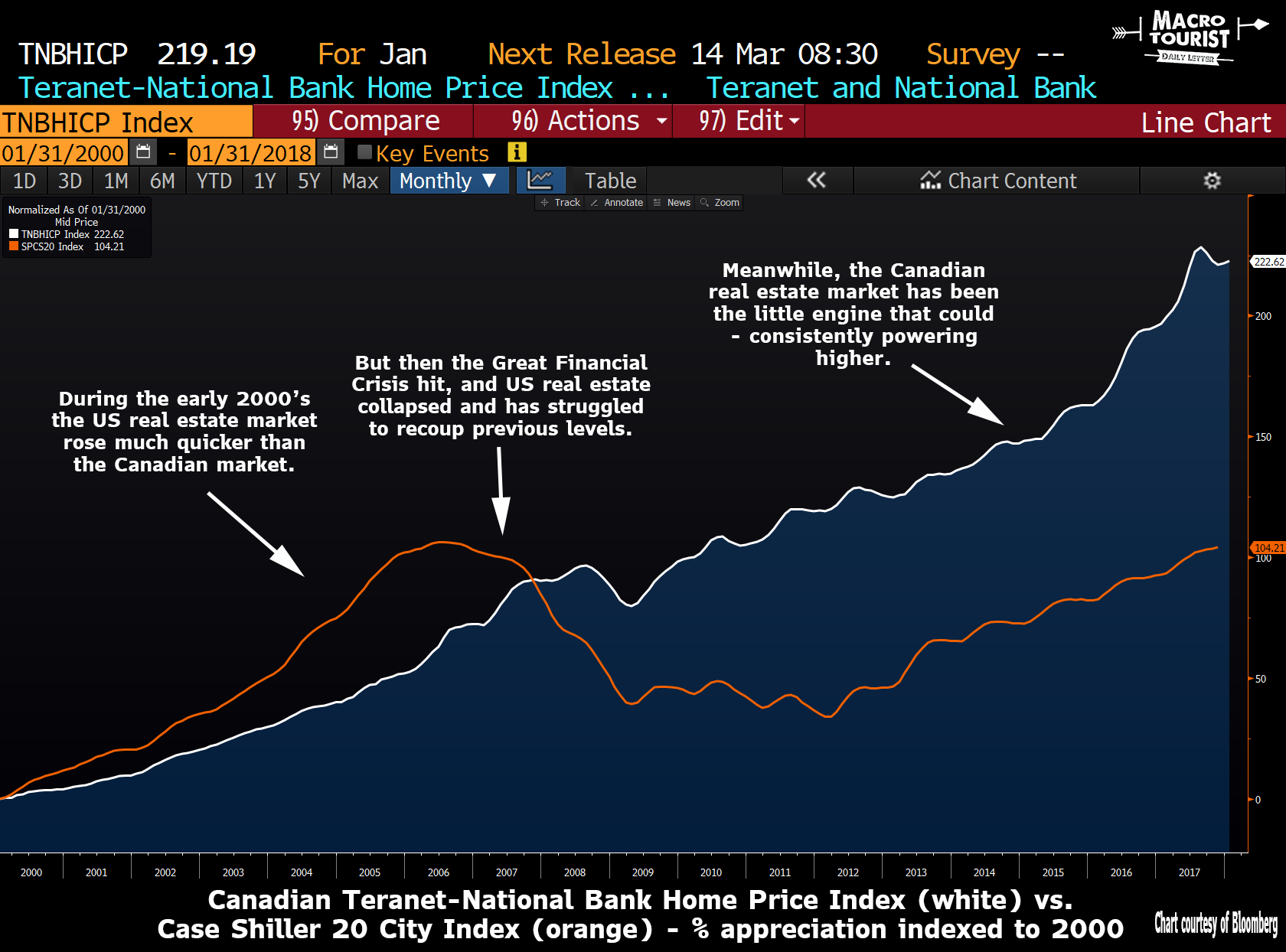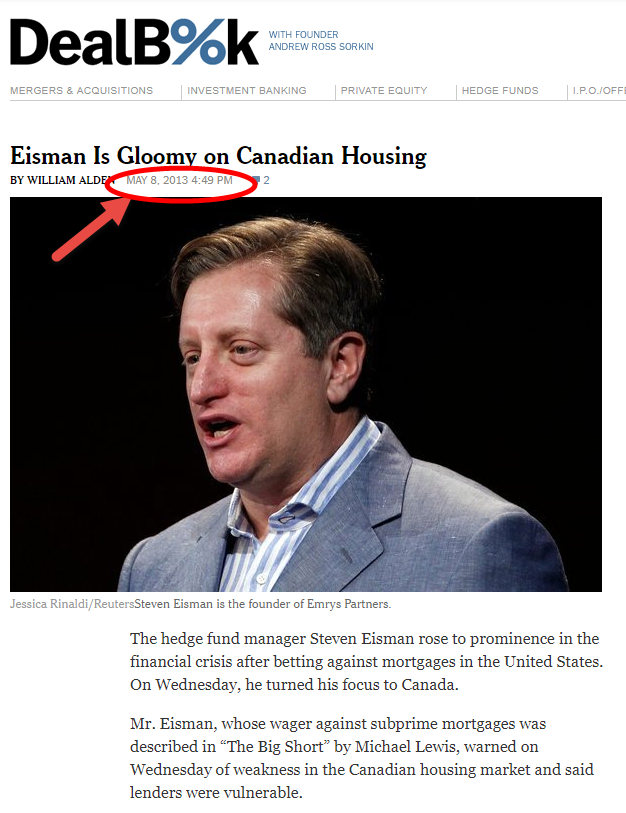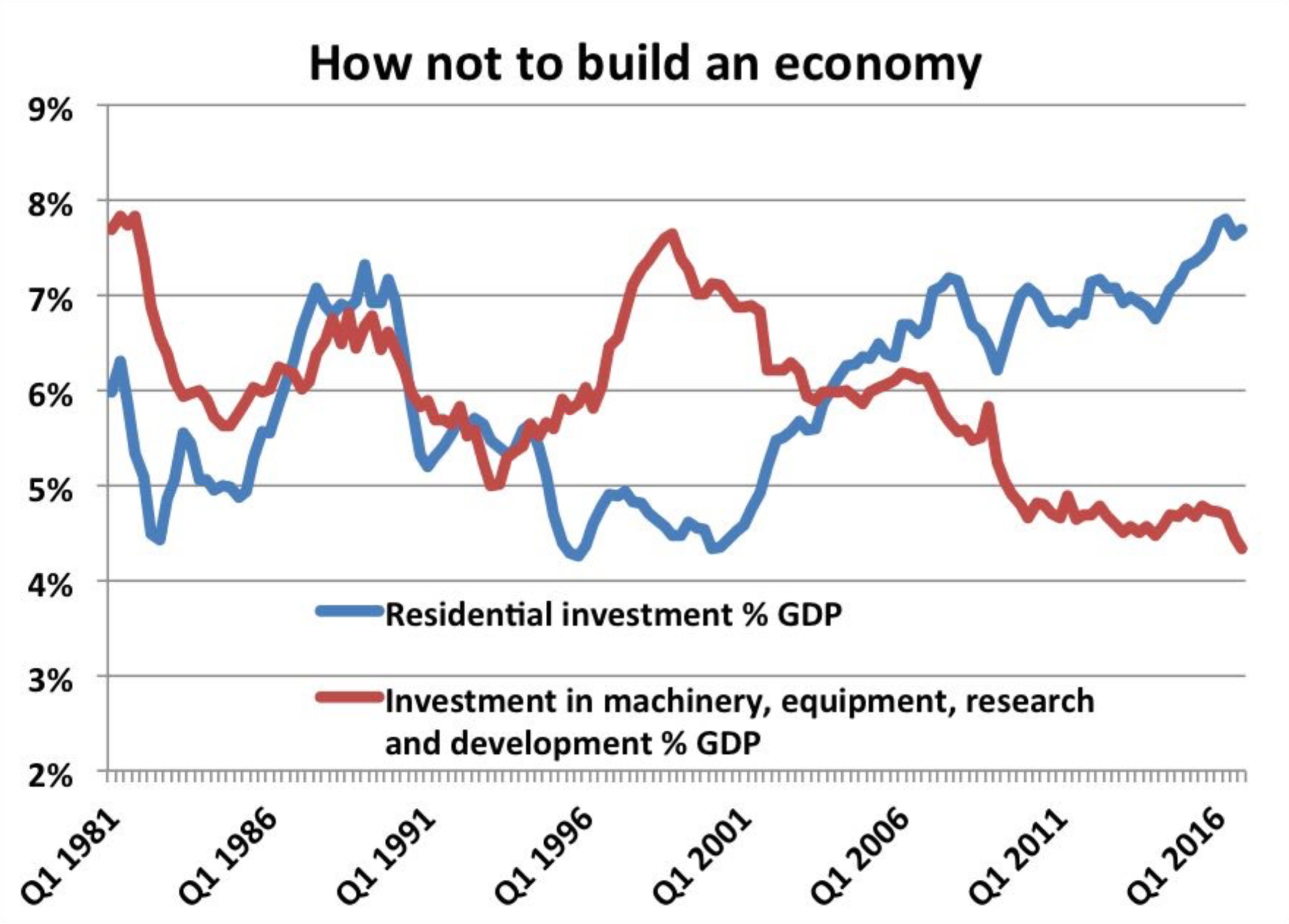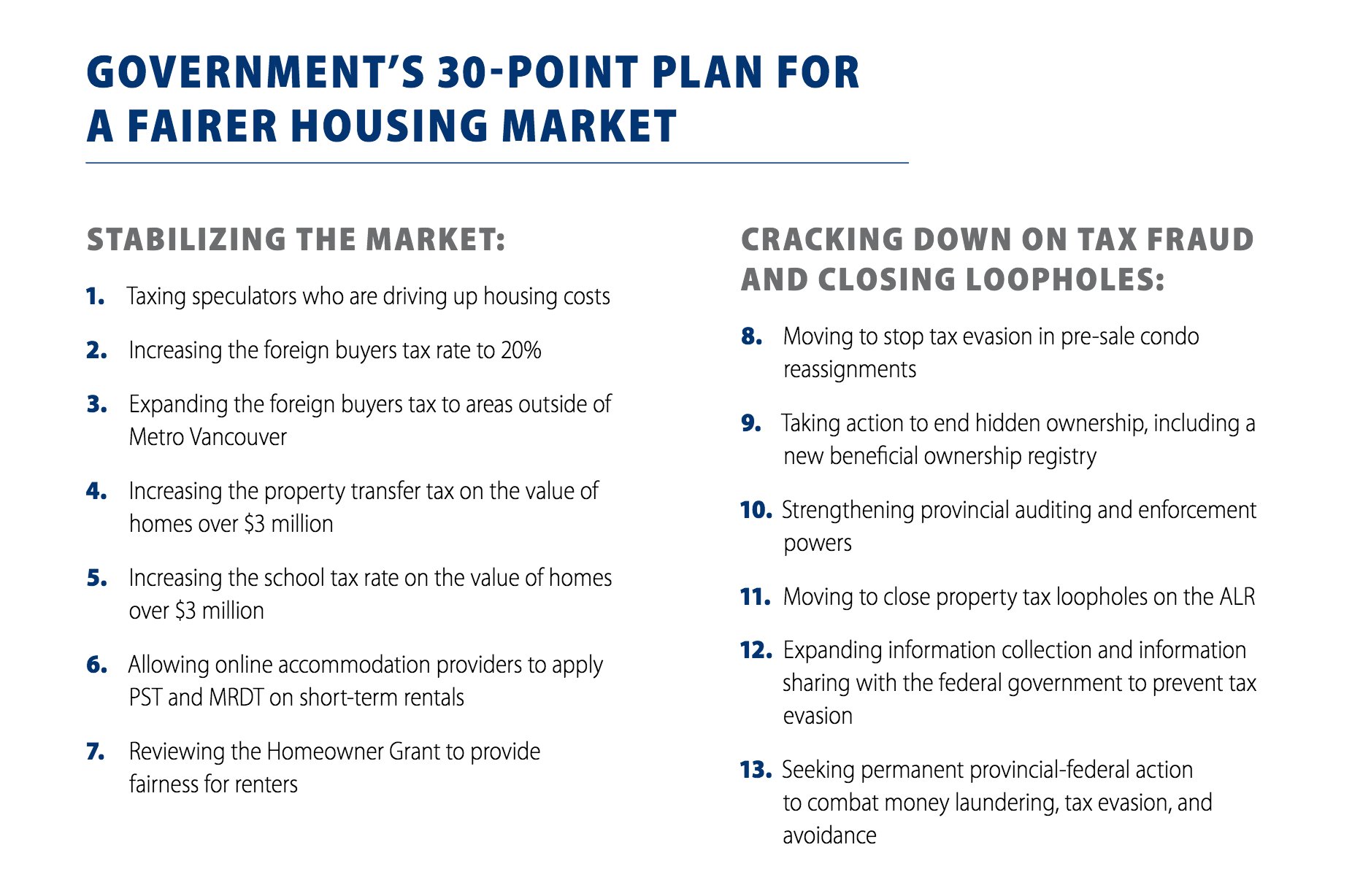Authored by Kevin Muir via The Macro Tourist blog,
First of all, sorry for the lack of posts lately. Long story, but rest assured, I am back on track and the old ‘tourist regular postings have resumed.
Next up, today I will write about Canadian real estate.
I know, many of you find that about as exciting as watching Winter Olympic curling, but give me a chance – after all, we Canadians have a way to make even curling entertaining.
The Canadian real estate bubble
As most everyone knows, over the past decade, Canada has experienced a massive real estate boom.
And for the past half dozen years, we have had to endure all the proclamations from hedge fund managers about the coming great Canadian housing market crash. Although there has also been some Canadian skeptics, the majority of these doomsdayers have been American managers who, after experiencing their own real estate crisis, can only imagine the next “big short” occurring in Canada.
These managers often simply took the US playbook and applied it to Canada, never considering that the US situation might be different. Nor did they factor in the possibility that Central Bank reaction functions might have changed since the Great Financial Crisis.
Don’t mistake me for some sort of unapologetic delusional Canadian housing bull. I think prices are nuts. But what I think is even more insane is the amount of balance sheet expansion from global Central Banks. We must always remember – the Canadian real estate bears are fighting against the authority that has the power to dictate the quantity of the asset in which we price all these other assets in.
Whether it be US or Canadian dollars, or Euros, or Yuan, do you really believe the supply of money will be suddenly throttled back? Or is it more likely that, given that 2008 is still relatively fresh in their minds, Central Banks will err on providing too much liquidity in the coming years? So yeah, maybe Canadian housing is stupidly overpriced, but so is almost every asset under the sun. Whether it is US equities, European bonds or crypto currencies, these are merely reflections of the absurd monetary policies that envelope the global financial system.
Finally the Canadian bears’ day in the sun?
Yet that doesn’t mean there aren’t assets that are relatively more expensive, and maybe after years of crying wolf, the Canadian real estate bears will one day prove correct. And maybe that day is today.
For the first time, I am legitimately scared for certain parts of the Canadian real estate market. Last week, the west coast provincial British Columbia government passed a series of new regulations that boggles the mind. You see, during this last cycle, B.C. has “suffered” with the hottest segment of the Canadian real estate market. Unfortunately, Vancouver’s popularity amongst Chinese investors and immigrants has mistakenly created a situation where many frustrated younger Canadians, who are getting priced out of the real estate market, are blaming foreign investment for the astronomical price increases. Last year, the B.C. government introduced a 15% foreign buyer tax, but when that didn’t slow down the rise enough, this budget, not only did they raise the 15% foreign buyers tax to 20%, they took other draconian measures.
From the Globe and Mail:
On Tuesday, one of the primary measures in the B.C. budget was the introduction of what the government is calling a speculation tax. It is aimed at foreign and domestic property owners who are parking capital in real estate and driving up prices in the province. It would apply to owners who do not pay income tax in British Columbia. Principal residences are exempt, as are properties with long-term renters.
The tax in 2018 will be 0.5 per cent of a property’s assessed value, a rate that rises to 2 per cent for 2019 and thereafter. It will be charged annually, separate from regular property taxes. B.C. predicts it will generate $200-million in revenue a year.
Here is my prediction. It won’t generate anywhere near $200 million a year in revenue because foreigners are going to dump their real estate faster than Lindsay Lohan downs pomegranate vodka martinis at the Oscars pre-party.
This has to be one of the stupidest decisions I have ever seen a government make (and that’s saying a lot). Think about it. It would be like Colorado imposing a 2% tax on NYC residents who own Aspen chalets. It doesn’t sound like a lot, but that’s 2% each and every year that is only paid by non-residents. It’s not a 2% transfer fee, it’s an extra yearly 2% shake-down (on top of all the regular taxes that the homeowner pays).
I don’t own any B.C. real estate, so this isn’t a case of sour grapes, but I can tell you one thing for sure – if I did, I would be hitting the bid. Capital goes where it is treated best, and it is obvious the B.C. government is not interested in treating investors with any sort of respect. About the only positive thing about this development is that at least they treated Torontonians with the same sort of contempt as the other foreigners so no one can describe the B.C. government as discriminatory.
Be careful what you ask for
The Canadian economy has become increasingly dependent on real estate. That’s what happens when you go through a decade long bull market- resources are diverted to where demand is greatest.
So this next graph from Canadian housing expert Ben Rabidoux should be of no surprise.
The Canadian economy, and B.C. especially, is dangerously balanced with an over reliance on housing. The B.C. government should be very concerned about the possibility of a hard landing as they try to stick handle a price dampening.
This isn’t just a slight turning of the screws on housing credit, but more of an attack on real estate. Have a look at this slide of the B.C. government’s policy changes (again from Ben):
I doubt that the market’s reaction to these policies will be to simply yawn. No, I suspect this policy will be successful at cooling house prices – too successful.
Now, I am not sure if it will spread to the rest of Canada, but I am certainly a bear on British Columbia economic prospects. Although some of these measures are probably too long in coming, dumping all of these at once will not prove wise.
The risks of the Canadian housing bears finally being correct has risen immensely. Maybe after six years of leaning on the sell button, they will finally be given a chance to write a blue ticket in the coming quarters.
What this means for the global economy
I understand that many readers are probably uninterested in the intricacies of the Canadian real estate market. Who cares if Canadian real estate finally collapses? It’s not going to affect anyone but Canadians.
Yes, that’s correct, but the way the Canadian government has gone about dealing with this problem gives important clues about how financial asset bubbles will be dealt with in the future throughout the globe.
Before 2008, what would have been the most likely response to the runaway Canadian housing prices? The Bank of Canada would have previously raised rates more aggressively. But in the aftermath of the Great Financial Crisis, Central Banks are loath to tighten monetary policy. Too many still have the taste of the last tightening cycle debacle in their mouth. So instead of getting out ahead of asset bubbles, Central Banks are more worried about the repercussions of pricking one.
This means that financial bubbles will not be burst by Central Banks. Let me repeat that again. Central Banks will not be bold enough to get out ahead of financial bubbles. Canada is a perfect example. Instead of putting interest rates to levels that would cool the overheating housing market, governments are forced to address the bubbles at a micro-level. As these financial bubbles morph into real problems, governments will try desperate solutions like the B.C. government’s aggressive program.
Whereas in the past the heavy lifting in stopping bubbles was born by the Central Banks, in the future they will not only shun that responsibility, but will increasingly be the source of keeping the bubbles going even as governments deal with the negative effects.
via Zero Hedge http://ift.tt/2HSFv3y Tyler Durden






